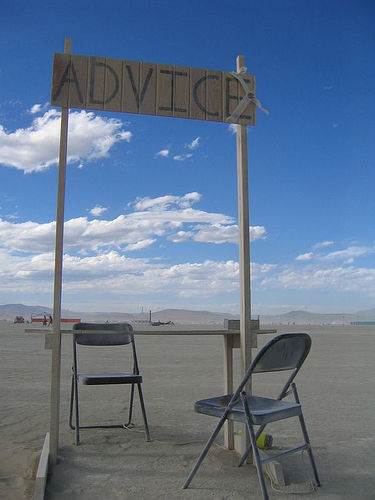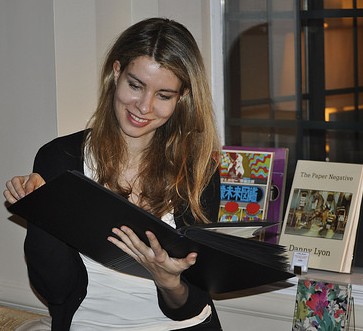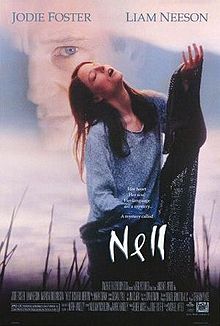Advice I Wish I’d Been Given When I Started … Part 3
This continues our series asking some seasoned, experienced authors what three key bits of advice they would give new writers that they wished they’d known when they started writing. We all wish someone had given us gems of wisdom that would help us avoid wasting precious time and making serious career mistakes. So I hope hearing the advice from these various authors will help you in your writing journey!
Today’s post is from mystery writer Natalie Buske Thomas:
When I first started out as a writer, life was easy. I was eleven years old—why wouldn’t life be easy? My father had submitted one of my poems to our local newspaper and much to our delight it was published. My confidence soared!
I entered writing contests, submitted stories to my school magazine, and eventually worked as a journalist for my college newspaper. After graduation I wrote articles for magazines, I penned a column for a small town newspaper, and I contributed to collaborative book projects. My writing life was still relatively easy though because I didn’t make my own decisions.
Editors, submission guidelines, and a boss told me what to do. I was free to simply write what I was told to write. Ah, but I wanted the freedom to make my own decisions! And indeed I did get that freedom, but the decisions I made weren’t exactly good ones. In 1998 I finished my first book. I was so thrilled to have written a book that I didn’t notice that I had failed to reach the word count for a full novel (it was barely a novella). I also failed to notice that the project was far from ready. I failed to seek professional editing.
At the time, I didn’t see the big picture. My first book was only about one thing: writing a book. I didn’t give much thought to people actually reading the book. I assumed that few would. Family and friends didn’t care what I did. What did it matter? Looking back, I wish I’d had more faith in myself and more vision for my writing career. Maybe then I wouldn’t cringe whenever readers discovered the books I wrote when I was first starting out. I tried making them disappear but the funny thing about books is that they can live forever after enough people have adopted them!
As awkward as it is to know that my early works still represent me, I know that if I hadn’t had the courage to put that first book out there I might not have the series I write today. I enjoy my fictional world of silly and clever Serena Wilcox, PI, and her crew of unlikely characters. I have spun the series into trilogies, and the current trilogy features time travel. Could I have a more fun job than this? So, it is with mixed feelings that I regret the mistakes I made early on in my career. That’s why my advice to new authors is contradictory.
1. Do use a pen name. Don’t use a pen name.
Ah, so which is it? Well, that depends. Imagine that your published book is still around five years from now, ten years from now, and even one hundred years from now. Imagine that your book is around forever! Your future self and your future family are forever connected to your book. If this idea overwhelms you, perhaps you should consider using a pen name.
Is your book controversial? Will you write more freely through the privacy of a pen name? Using a pen name offers you protection and freedom.
On the other hand, what if your goal is to become known? In my situation I’ve felt overwhelmed by the idea that my books will represent me “forever,” but using my real name benefits me. I’m also an oil painter and an entertainer—two more artistic paths that require visibility to succeed. How can my reputation as a prolific author help me if I use a pen name? In my situation, the value and benefit from using my real name is greater than the freedom and protection from using a pen name.
2. Do make sure that your book is ready. Don’t hold back until your book is perfect.
You have another conundrum. If a book is released (or submitted, if you are seeking an agent or a publisher) before it is professionally edited, it will likely be panned by reviewers and dismissed by readers. If a book hasn’t been fully fleshed out and mulled over, you will regret publishing it. What if you had a gem inside you, but you didn’t have the patience or work ethic to wait until the rough stone became a diamond? Well, that’s the problem—the wait.
You can’t wait too long to publish your book. At some point you have to stop pick, pick, picking at it. You have to cut yourself off from rewriting and editing. You have to take a leap of faith that your book is ready. It may be helpful to define what you mean by “ready.”
What are your goals for the book? If your goals are to bring a book to the market that meets formatting standards, is reasonably free of typographical and grammatical errors, and delivers a fully fleshed-out story or project, you can approach your book as you would if you were a college student preparing a term paper for a final exam. You can set a deadline for your quality publication, turn it in, and hope for a good grade, while knowing that you gave it your best shot.
However, if you don’t set parameters for what readiness means, you might strive for perfection—and of course never reach it—or you might set the bar too low. Don’t throw your book out into the marketplace too soon. Having said that, I can speak from experience that if you do throw a book into the water before it is ready, you can learn to live with that humiliation. Most authors have a book or two or three that haunts them. If you keep writing, eventually your best efforts will eclipse your embarrassing projects. Writing is about taking risks.
3. Do assume that your books will be read by a wide audience. Don’t let the thought of a wide audience intimidate you.
Again, it’s a “darned if you do, darned if you don’t” situation! I was shortsighted when I wrote best-selling Angels Mark, a thriller about corrupt American government. What if the United States knew of a threat to the nation and did nothing to stop it? I named that threat: Iran with nuclear capabilities. When I wrote the book, Iran was nowhere near capable of such a thing. When I wrote the book, few people had ever read my work. It was beyond my expectations that Angels Mark would be read by more than 100,000 people and that people from Iran would follow me on Twitter and Facebook. Perhaps if I had known that my thriller would be read by a wide international audience I would have done a few things differently.
In case my sarcasm wasn’t detected, of course I would have done things differently had I known. While I feel intimidated by the success of Angels Mark and the uncanny likeness to current events, it benefits my career that I’d inadvertently written a politically controversial book. My point is, sometimes it is better not to know what will happen. Don’t dismiss the idea that your book will be read by a wide audience, but don’t fear it either. Run down that literary pier and take a thrilling leap!
Dare to Imagine
Another note of encouragement on that end: if you allow yourself to imagine success, you can plan for the bigger picture. Does your book lend itself to a series? How can you lay down the foundation for that series from your first book? What else can you see in the bigger picture?
I realized that I could hire myself to do the cover art for my books, and I think about this when I come up with a new book title and concept. How do my literary goals fit into my design/packaging/marketing plan? Sometimes I reject a title that doesn’t work well for my artistic goals. Because my oil paintings are featured on my book covers, it’s important to me to select a title and concept that inspires art.
Think about your big picture with the expectation that your book will be seen by a wide audience. What do you want to promote besides your story? Carefully craft your biography, give great thought to your author photo, and pay attention to the contact information you provide in your book. If you list a website, keep in mind that you’ll want this site to work for as long as possible. When planning ahead in this area, it’s best to purchase your own domain name. You can then update your social media links and other contact information from your website.
It can be said that writing is like everything else in life: expect the worst but hope for the best. Or, as I prefer to say: plan for the best and expect the best.
Feature Photo Credit: laughlin via Compfight cc
 Natalie Buske Thomas is best known for the Serena Wilcox trilogies. Natalie loves all things Irish, oil painting, sugar cookies, the color red, pizza, live music, and singing. She was born in upstate New York, raised in Indiana, and then lived in Germany for three years. She currently resides near the Twin Cities. Natalie would one day like to time travel, but for now she writes about it here at her website.
Natalie Buske Thomas is best known for the Serena Wilcox trilogies. Natalie loves all things Irish, oil painting, sugar cookies, the color red, pizza, live music, and singing. She was born in upstate New York, raised in Indiana, and then lived in Germany for three years. She currently resides near the Twin Cities. Natalie would one day like to time travel, but for now she writes about it here at her website.












Ooooo I love that part about having a lousy book or two out there, haunting us forever. It happened to me so it’s nice to know I’m not alone. Great article, thanks so much for sharing.
Enjoyed your advice, especially about when to use a pen name. 🙂 Thanks